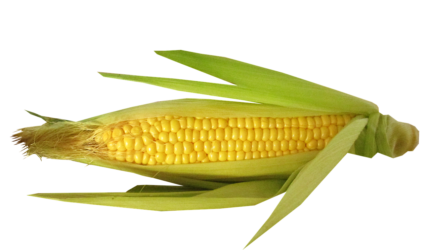Medically reviewed by Dr. Ramesh Gaddam, M.D. — Written by Sumalatha, D.N.H.E
Sweet corn, scientifically known as Zea mays var. saccharata, is a type of maize (corn) that is harvested while the kernels are still in their immature, sweet, and tender stage.
Unlike field corn, which is harvested when mature and used for various purposes like animal feed and industrial products, sweet corn is grown specifically for human consumption due to its sweet taste.

1. Sweet Corn Nutrition
Nutrition of Sweet Corn (per 100g):
| Nutrient | Amount per 100g |
|---|---|
| Calories | 86 calories |
| Carbohydrates | 19.02 grams |
| Sugars | 3.22 grams |
| Dietary Fiber | 2.7 grams |
| Protein | 3.22 grams |
| Fat | 1.18 grams |
| Vitamins and Minerals | |
| Vitamin C (ascorbic acid) | 9.6 mg (16% DV) |
| Thiamin (Vitamin B1) | 0.2 mg (13% DV) |
| Folate (Vitamin B9) | 42 mcg (11% DV) |
| Vitamin A (as provitamin A) | 9 mcg (1% DV) |
| Potassium | 270 mg (7% DV) |
| Phosphorus | 89 mg (9% DV) |
| Magnesium | 37 mg (9% DV) |
| Iron | 0.52 mg (3% DV) |
| Zinc | 0.46 mg (3% DV) |
2. Sweet Corn Benefits

Rich in Fiber
Sweet corn is packed with fiber, which helps improve digestion. It can prevent constipation by keeping your digestive system running smoothly.
Eating fiber-rich foods like sweet corn also helps you feel full longer, making it easier to control your appetite.
Supports Eye Health
Sweet corn contains lutein and zeaxanthin, two nutrients that help keep your eyes healthy.
These antioxidants protect your eyes from damage caused by light. Eating sweet corn regularly may reduce the risk of certain eye conditions as you age.
Boosts Energy
The natural sugars and carbohydrates in sweet corn provide a quick source of energy.
These nutrients are easily broken down by the body, giving you the energy you need for daily tasks. This makes sweet corn a great option for a snack or side dish.
Good for Heart Health
Sweet corn contains important nutrients like magnesium that support a healthy heart.
Magnesium helps regulate blood pressure and keep your heart rhythm steady. Including sweet corn in your diet can contribute to overall heart health.
Promotes Healthy Skin
The antioxidants in sweet corn help protect your skin from damage caused by the sun and pollution.
These nutrients can also reduce signs of aging, like wrinkles. Eating sweet corn regularly can keep your skin looking healthier.
Supports Immune Function
Sweet corn is rich in vitamin C, which is essential for a strong immune system.
Vitamin C helps your body fight off infections and heal faster. Adding sweet corn to your meals can help keep your immune system in good shape.
Aids in Weight Management
The fiber in sweet corn helps you feel full, which can reduce overeating.
Fiber slows down digestion, making you less likely to snack between meals. This can be helpful for maintaining a healthy weight.
Promotes Brain Health
Sweet corn contains B vitamins like folate and thiamine that support brain function.
These nutrients help with memory and mental clarity. Regularly eating foods with B vitamins, like sweet corn, can benefit your brain as you age.
Regulates Blood Sugar
The fiber in sweet corn helps slow down the digestion of sugars.
This prevents spikes in blood sugar levels, making it a good choice for people watching their blood sugar. Including sweet corn in meals can support balanced energy levels.
Bone Strength
Sweet corn provides minerals like phosphorus and magnesium, which help maintain strong bones.
These minerals support bone growth and repair. Including sweet corn in your diet can contribute to healthier, stronger bones.
3. Sweet Corn Uses
Sweet corn is a versatile and delicious vegetable that can be used in a variety of culinary applications.
Here are some common uses for sweet corn:

Boiled or Steamed Corn on the Cob:
Corn on the cob is a classic and simple way to enjoy sweet corn. It’s often boiled or steamed and served with butter and salt.
You can also add various seasonings or herbs for extra flavor.
Grilled or Roasted Corn:
Grilling or roasting sweet corn brings out its natural sweetness and adds a smoky flavor.
You can brush it with butter or olive oil and season with herbs, spices, or cheese before cooking.
Corn Salads:
Sweet corn kernels can be used in salads to add a crunchy, sweet element.
You can mix them with other vegetables like tomatoes, bell peppers, and onions, along with a vinaigrette dressing.
Corn Salsa:
Sweet corn can be used to make a tasty salsa, often combined with tomatoes, onions, cilantro, and lime juice.
It’s great as a topping for tacos, grilled meats, or as a dip with tortilla chips.
Corn Chowder:
Corn chowder is a creamy soup made with sweet corn, potatoes, and sometimes bacon.
It’s a comforting and filling dish, especially popular during cooler months.
Cornbread:
Cornmeal made from ground corn is used to make cornbread, a classic Southern side dish.
It can be sweet or savory and is often served with chili, barbecue, or as a snack.
Corn Fritters:
Corn fritters are made by mixing sweet corn with a batter and frying it until crispy.
They make a delicious appetizer or side dish.
Corn Casseroles:
Sweet corn is often used in casseroles, such as corn pudding, where it’s combined with other ingredients like eggs, milk, and cheese for a creamy and comforting dish.
Toppings:
Sweet corn can be used as a topping for various dishes, including pizzas, nachos, and baked potatoes.
It adds sweetness and texture to these foods.
Corn Relish:
Corn relish is a sweet and tangy condiment made from corn, bell peppers, onions, and vinegar.
It’s great as a topping for hot dogs, burgers, or sandwiches.
Corn in Stir-Fries:
Sweet corn can be added to stir-fry dishes for a pop of color, texture, and sweetness.
It pairs well with other vegetables, proteins, and stir-fry sauces.
Canned or Frozen Corn:
Sweet corn is often canned or frozen for convenient use in various recipes.
It’s a great option for out-of-season corn or when you want to save time in the kitchen.
Corn Desserts:
In some cuisines, sweet corn is used in desserts, like corn ice cream, corn pudding, or corn-based pastries.
These dishes combine the natural sweetness of corn with other dessert ingredients.
4. Sweet Corn Side Effects
May Cause Digestive Issues
Sweet corn is rich in fiber, which helps with digestion, but eating too much can lead to bloating or gas.
For people not used to a high-fiber diet, this could cause discomfort. It’s best to introduce sweet corn gradually and eat it in moderation.
High in Carbohydrates
Sweet corn contains carbohydrates, primarily in the form of starch, which provides energy.
However, if you’re following a low-carb diet, you may need to monitor your intake.
Eating too much sweet corn can also contribute to weight gain, especially when paired with high-fat toppings.
Potential for Allergic Reactions
Some individuals may have a corn allergy, which can cause symptoms like hives, digestive issues, or even severe reactions like anaphylaxis.
If you suspect you have a corn allergy, it’s important to avoid corn products and consult a doctor for advice.
Sensitivity to FODMAPs
Sweet corn contains FODMAPs, certain types of carbohydrates that can cause digestive problems for people with irritable bowel syndrome (IBS).
If you are sensitive to FODMAPs, you may experience bloating, gas, or discomfort after eating sweet corn.
Limiting your intake may help reduce symptoms.
Blood Sugar Spikes
While sweet corn has fiber that helps slow sugar absorption, it is still a starchy food.
Eating too much can cause blood sugar levels to rise, especially in people with diabetes.
Balancing sweet corn with other low-carb foods can help manage blood sugar levels.
Risk of Contaminants
Like many crops, sweet corn may contain pesticide residues.
To reduce exposure to harmful chemicals, you can opt for organic sweet corn or thoroughly wash conventionally grown corn before eating.
Salt and Butter Concerns
Sweet corn is often served with added butter and salt, which can increase your intake of saturated fats and sodium.
This can affect heart health and blood pressure if consumed in large amounts.
It’s a good idea to enjoy sweet corn with healthier toppings or in its natural form.
Canned and Processed Corn
Canned or processed sweet corn may contain added salt, sugar, or preservatives.
These additives can affect your health if consumed in excess.
To avoid this, check food labels or choose fresh or frozen sweet corn for a more natural option.
5. Sweet Corn Calories
The number of calories in sweet corn can vary based on factors such as the serving size and the way it is prepared.
Here’s an approximate calorie breakdown for common serving sizes of sweet corn:
- 1 cup of boiled or steamed sweet corn: Approximately 130 calories
- 1 medium-sized ear of boiled or steamed sweet corn: Approximately 85-100 calories
- 1 cup of canned sweet corn (drained): Approximately 160 calories
- 1 cup of frozen sweet corn (cooked): Approximately 125 calories
Nutrient-Rich
Sweet corn provides essential nutrients like carbohydrates, fiber, vitamins, and minerals.
These nutrients support your toddler’s growth and overall health.
Including sweet corn in their diet can help meet their nutritional needs.
Supports Healthy Digestion
The fiber in sweet corn helps keep your toddler’s digestive system functioning well.
It can prevent constipation and promote regular bowel movements.
Good digestion contributes to their comfort and health.
Boosts Energy
Sweet corn is a good source of carbohydrates, which give your toddler energy for play and daily activities.
It provides a quick and natural energy boost.
This can help keep them active and engaged throughout the day.
Encourages Healthy Eating
The natural sweetness of sweet corn can make it more appealing to toddlers.
This can help establish healthy eating habits and encourage them to enjoy a variety of vegetables.
A taste for sweet corn can lead to a preference for other healthy foods.
Supports Vision Health
Sweet corn contains beta-carotene, which the body converts into vitamin A.
Vitamin A is important for healthy vision and can help protect your toddler’s eyes.
This contributes to their overall well-being and visual development.
Safe Texture
The soft texture of cooked sweet corn kernels is suitable for toddlers who are learning to eat solid foods.
It is less likely to pose a choking hazard compared to harder foods.
This makes sweet corn a safer choice for young children.
Versatile Food
Sweet corn can be added to a variety of dishes, like purees, mashed vegetables, or mixed with other foods.
This versatility helps you include it in different meals, making it easier to incorporate into your toddler’s diet.
7. Sweet Corn Benefits for Skin
Sweet corn offers several potential benefits for the skin due to its nutrient content and antioxidant properties.
Here are some ways in which sweet corn can contribute to healthier skin:
Antioxidant Protection:
Sweet corn contains antioxidants like lutein and zeaxanthin, which help protect the skin from the harmful effects of free radicals.
These antioxidants can reduce oxidative stress and may contribute to a more youthful and radiant complexion.
Sun Protection:
Lutein and zeaxanthin found in sweet corn have been linked to protecting the skin from UV radiation.
While not a substitute for sunscreen, incorporating foods rich in these antioxidants may offer some level of sun protection and help prevent premature aging caused by sun exposure.
Skin Hydration:
Sweet corn has a high water content, which can help hydrate the skin from the inside.
Proper hydration is essential for maintaining skin elasticity and reducing dryness.
Collagen Production:
The vitamin C in sweet corn is important for collagen production, a protein that plays a key role in maintaining skin’s firmness and smoothness.
Adequate collagen production can help reduce the appearance of fine lines and wrinkles.
Wound Healing:
The vitamin C in sweet corn is also involved in wound healing and tissue repair.
It can assist in the formation of new skin cells, helping to heal cuts, scrapes, and other skin injuries.
Anti-Inflammatory Effects:
Sweet corn contains various phytochemicals with anti-inflammatory properties.
Reducing inflammation can help soothe irritated or red skin and may be beneficial for those with skin conditions like acne or rosacea.
Acne Prevention:
The combination of fiber and antioxidants in sweet corn may help prevent or manage acne by promoting healthy digestion and reducing inflammation.
Collagen Protection:
Sweet corn is a source of manganese, a mineral that helps protect collagen from damage, potentially preserving skin elasticity and preventing sagging.
It’s important to note that while sweet corn can contribute to skin health, it is not a standalone solution for all skin concerns.
8. Sweet Corn Benefits for Hair
Sweet corn, when included as part of a balanced diet, can provide some nutrients that are beneficial for hair health.
Here are ways in which sweet corn may offer benefits for your hair:
Biotin Content:
Sweet corn contains biotin, also known as vitamin B7 or vitamin H, which is important for the health of hair and nails.
Biotin plays a role in the production of keratin, a protein that is a key structural component of hair.
Folate (Vitamin B9):
Folate is another B-vitamin found in sweet corn.
It contributes to cell division and tissue growth, which is essential for the renewal of hair follicles and the growth of healthy hair.
Iron:
Sweet corn provides a modest amount of iron, an essential mineral that helps transport oxygen to hair follicles.
Proper oxygen supply to the hair roots is important for hair growth.
Vitamin C:
The vitamin C in sweet corn is important for the absorption of non-heme iron (the type of iron found in plant-based foods), which can help prevent iron-deficiency anemia.
Anemia can lead to hair loss, so maintaining healthy iron levels is crucial for good hair health.
Hydration:
Sweet corn has a high water content, and proper hydration is essential for maintaining healthy hair.
Dehydration can lead to dry, brittle hair and scalp issues.
Antioxidants:
Antioxidants in sweet corn, such as lutein and zeaxanthin, may help protect hair and the scalp from oxidative stress, reducing the damage caused by free radicals.
Healthy Scalp:
A healthy scalp is essential for healthy hair. Sweet corn’s nutrient profile can help promote scalp health by providing necessary vitamins and minerals.
9. Sweet Corn Benefits for Weight Loss
Sweet corn can be a part of a weight loss diet when consumed in moderation and as part of a balanced, calorie-controlled eating plan.
Here are some ways in which sweet corn can be beneficial for weight loss:
Low in Calories:
Sweet corn is relatively low in calories, particularly when compared to some other high-calorie foods.
This makes it a good choice for those looking to reduce calorie intake while still enjoying a satisfying and tasty vegetable.
Dietary Fiber:
Sweet corn contains dietary fiber, which can help promote feelings of fullness and reduce overall food intake.
A diet high in fiber can be beneficial for weight management because it helps control appetite and reduce overeating.
Satiety:
The combination of water content and dietary fiber in sweet corn can help you feel full and satisfied, which can reduce the temptation to snack on high-calorie, low-nutrient foods.
Low in Fat:
Sweet corn is naturally low in fat, which can be helpful for those aiming to limit their fat intake as part of a weight loss plan.
Nutrient Density:
While sweet corn is not a low-calorie food, it is nutrient-dense, providing essential vitamins, minerals, and antioxidants without many empty calories.
Including nutrient-dense foods in your diet can help you meet your nutritional needs while controlling calorie intake.
Versatility:
Sweet corn can be used in various dishes and meal preparations, making it a versatile addition to your diet.
You can incorporate it into salads, soups, and stir-fries or enjoy it as a simple side dish.
Filling Snack:
Sweet corn can be a satisfying and healthy snack option, whether it’s fresh off the cob or as part of a homemade salsa.
Conclusion
Frequently Asked Questions (FAQs)
Medically reviewed by Dr. Ramesh Gaddam, M.D.

General Physician, Diabetologist, and Critical Care Specialist.
Discover more from Health Build-Up
Subscribe to get the latest posts sent to your email.






